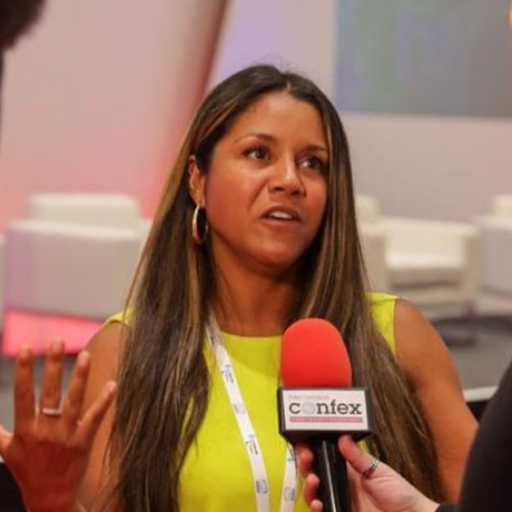Gabby Austen-Browne says diversity, equity and inclusion isn’t a trend or a “nice to have” for the meeting industry, and she hopes to get that message across to those attending MPI’s European Meetings & Events Conference (EMEC), 26-28 March in Brighton, U.K.
“Addressing, implementing and celebrating DE&I is key for our industry to remain sustainable, to attract talent, to innovate, to reflect our audiences and thrive,” says Austen-Browne, the founder of Diversity Alliance, whose professional experience includes producing and delivering events, managing venue operations and developing sales strategies for hospitality venues, to inform, support and advise on DE&I strategies that are relevant to the sector. “The future of event experiences will be very much dictated by whether we adopt this.”
Austen-Browne will be joined by Carina Bauer, CEO of IMEX Group; Kim Myhre, managing partner of Experience Designed; and Miguel Neves, editor in chief of Skift Meetings during EMEC’s “Plenary Power Panel II: What’s Next? The Future of Event Experiences,” which is sponsored by the Mexican Caribbean.

How does your background in event planning and venue operations help you better educate those in the event and hospitality industries about diversity and inclusion?
Events and the events industry have many opportunities to demonstrate diversity, inclusion, equity and accessibility, and DE&I should be considered at every stage of the event planning and delivery process—whether that’s when pitching for work or when choosing suppliers or curating content. My industry experience gives me a unique insight into what needs to be considered from a DE&I perspective and because I have been in an event planner’s shoes, I better understand the specific challenges that come from these insights and am able to advise on strategies and solutions based on this knowledge and my experience.

Why is it important for event professionals to focus on D&I strategies?
Generational aspirations and societal attitudes mean organisations in and outside of the events industry are actively asking planners and suppliers to evidence their diversity and inclusion aims and progress in order to maintain clients, secure new business and align with organisations’ CSR policies. Studies show that not taking diversity and inclusion seriously can have a direct impact not only on brand reputation, but also on the bottom line. We have a real opportunity to demonstrate and promote diversity, accessibility and inclusion, and most importantly represent and reflect our attendees, audiences, clients and stakeholders. If we fail to acknowledge this in a meaningful and authentic way, we will struggle to innovate, attract new talent and deliver what our stakeholders need and expect.
Can you share an example of how progress has been made in efforts to create a more inclusive event industry or hospitality industry?
DE&I is still very much seen as a “nice to have” and hasn’t been fully integrated into the workplace and events in the same way sustainability has. I have been lucky to work with some great clients who have implemented inclusive recruitment practices to attract more diversity into their workplaces, supplier diversity programmes to influence supply chains and some who are supporting diversity in the talent pipeline through work experience opportunities, industry-specific apprenticeships and by donating to the REACH events management scholarship programme.
“DE&I is still very much seen as a ‘nice to have’ and hasn’t been fully integrated into the workplace and events in the same way sustainability has.”
Your panel at EMEC Brighton will be discussing the future of event experiences. How do you see the event D&I landscape changing in the near future?
Currently, we are still seeing a lack of diversity in leadership positions and in the boardroom. I believe in the near future we will recognise that having diverse communities in decision-making positions will help make sure DE&I activities are more authentic and therefore the experiences we deliver will better reflect the wide range of identities and experiences needed to cater to diverse clients, audiences and stakeholders. I also see events becoming more purpose- and value-led because of this.
In addition, there is a labor and talent shortage that will need to be addressed from a long-term perspective and with a lens in DE&I. Finding ways to attract and retain a variety of talent will require a change in hiring and recruitment practices as well as specific bias training in recruitment.
"Plenary Power Panel II" sponsored by Mexican Caribbean.

